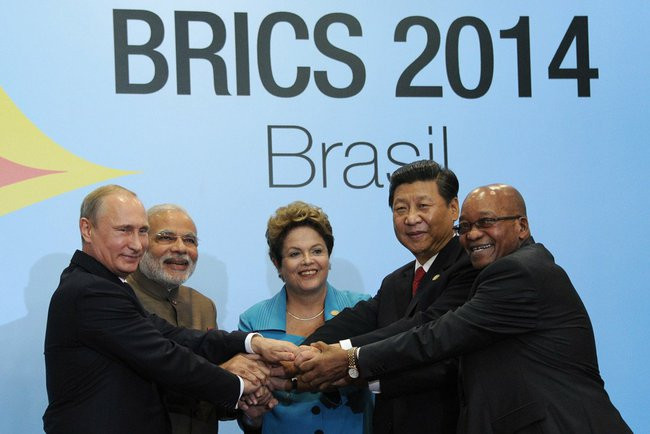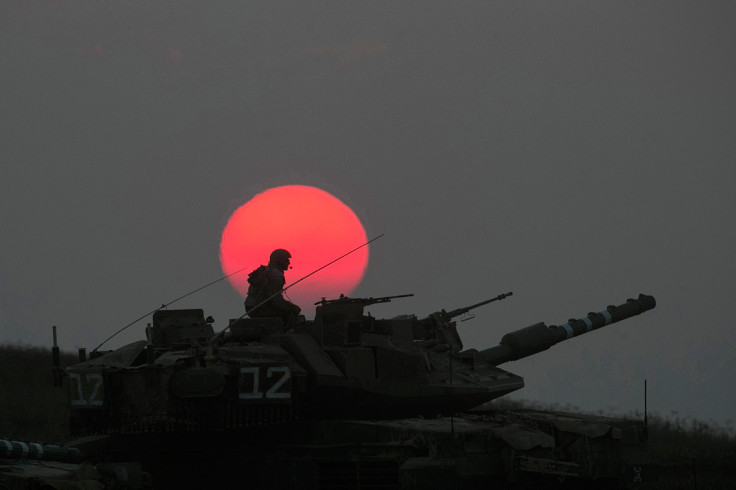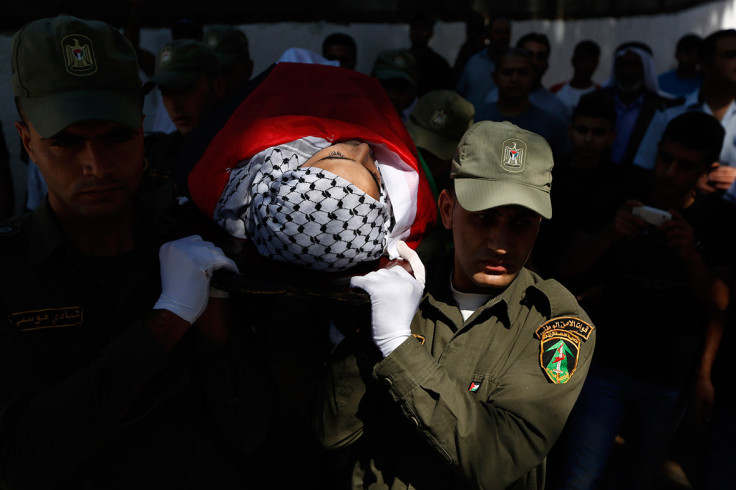Where the Brics Stand on Israel's Gaza Offensive

Brazil, Russia, India, China and South Africa agree on a two-state solution for the long-running Israel-Palestine but their differing responses to the Gaza crisis reveal they are far from united.
With the US publicly backing Israel's use of force in the Gaza offensive and pushing all sides towards an Egypt-brokered ceasefire without preconditions, the emerging nations have assumed alternative and divergent positions on the best way to resolve the fighting.
Russia, India and China on the fence
India has sought to maintain its long-established neutrality when it comes to Israel. While the Indian parliament heard Israel described as a "terrorist" committing a "genocide" from opposition lawmakers, the Indian leadership has stood its ground.
Rooted in trade ties, especially in defence, the government's neutrality on the Gaza offensive is unlikely to change. Israel is the second-largest arms supplier to India, behind Russia.
Those economic ties merge with a support for Palestine that does not explicitly support Hamas.

India's position is summed up neatly by External Affairs Minister Sushma Swaraj. "India fully supports the Palestinian cause while at the same time maintaining its ties with Israel," she said
in parliament.
Embroiled in its own foreign policy quagmire in Ukraine and reluctant to support resistance movements with Islamist tendencies, Russia has remained on the fence regarding Israel's Gaza offensive.
A far more experienced player on the international stage than India, Moscow wields a veto at the United Nations Security Council. That roughly translates as "Moscow has serious geopolitical clout".
While the Soviet Union heartily support Yasser Arafat's Palestinian Liberation Organisation, Moscow has distanced itself somewhat from the Palestinian leadership in its current guise.
Russia strongly condemned the 2008-09 Israel-Gaza conflict but its messaging over the current crisis appears to show a more neutral position, in which it backs the Egyptian ceasefire proposal.
"Now we need to urgently bring an end to the suffering of peaceful Palestinians and Israelis and the destruction of civilian infrastructure," the foreign ministry said in a statement.
The other Bric with a permanent spot on the UN Security Council is China.

Following the latest escalation in fighting, Chinese President Xi Jinping has toed the line of neutrality and encouraged the Israeli and Palestinian leaders to meet halfway.
"We support the mediation efforts by the United Nations, regional countries and the Arab League," said Xi.
China has a history of backing Palestinian political movements in the 1960s and early 1970s. That support lessened as Deng Xiaoping led the country, economically more so than politically, into the orbit of the US and the West.
China established full diplomatic ties with Israel in the early 1990s, ushering in a new era of economic cooperation. Annual trade between the countries rocketed from around $51m in 1992, to almost $11bn in 2013.
China is Israel's second-biggest export market and third-largest trading partner, while military cooperation between the sides has become entrenched. Israel is China's second-largest supplier of military arms and technology.
The strengthening of trade ties between the two sides has coincided with a public distancing between Beijing and the Palestinian leadership.
However, China backed the Palestinian resolution at the UN General Assembly, which upgraded Palestine to non-member observer state status within the UN.
Eager to keep both Israel and Palestine on side, Xi's current stand is a neutral position. Yet, it shows that Beijing wants to see a ceasefire that takes Palestinian political aims in to account, rather than backing the Egyptian proposal that calls for a ceasefire without preconditions.
Brazil and South Africa Lean towards Palestinian Position
The two remaining Brics, Brazil and South Africa, have been openly critical of the Gaza offensive and its potential repercussions for the whole region.
A statement released by the Brazilian government urged Israel to consider the humanitarian consequences for the civilian population in Gaza and called for an end to the years-long economic blockade.
"Such an offensive could have serious repercussions for the increased instability in the Middle East and exacerbate the already dramatic humanitarian situation in the Occupied Palestinian Territory," the statement said.

"We urge the Israeli forces to strictly respect their obligations under the International Humanitarian Law. Furthermore, we consider it necessary that Israel put an end to the blockade on Gaza immediately."
Brazil has officially recognised the Palestinian state and has supported an end to the Gaza blockade for years. That said, Brasilia and Tel Aviv maintain close political, military and economic ties.
The relationship between South Africa and Israel has been framed by Tel Aviv's quiet cooperation with the apartheid government. Nelson Mandela once noted that upon his release from prison, he was invited to visit "almost every country in the world, except Israel".
The relationship has remained frosty, with South Africa reprimanding Israel's ambassador after the Gaza flotilla raid in 2010, during which nine activists were killed.
South Africa's President Jacob Zuma recently condemned Israel's "disproportionate" use of force in the Gaza offensive.
© Copyright IBTimes 2025. All rights reserved.






















